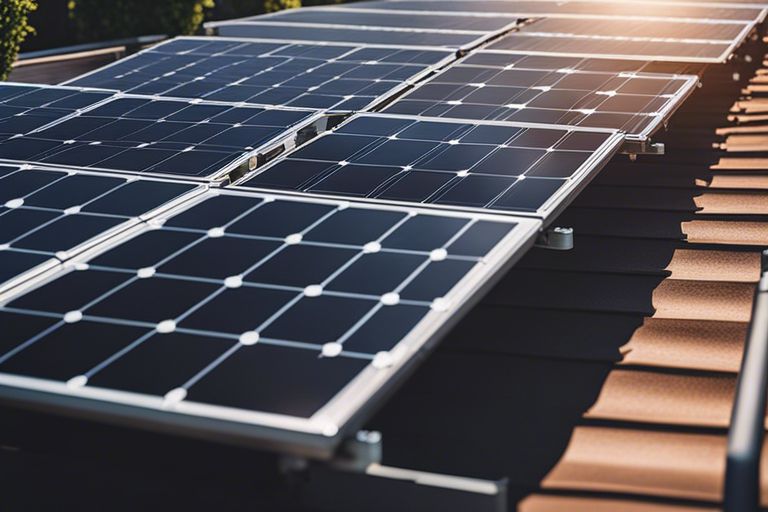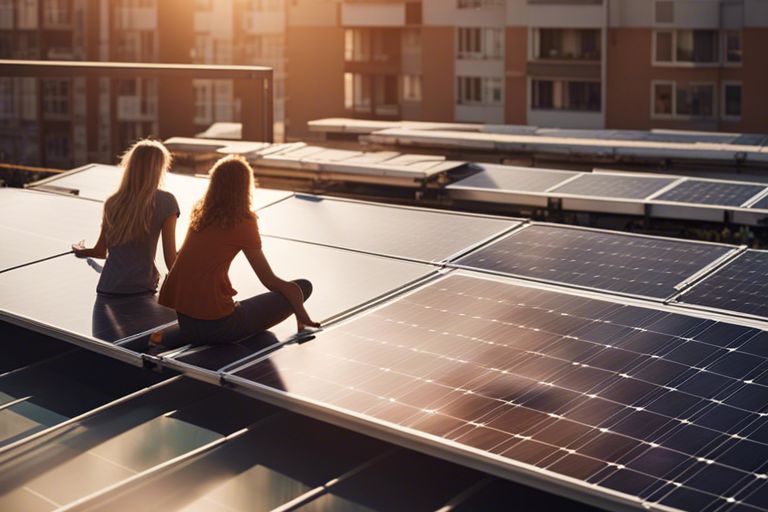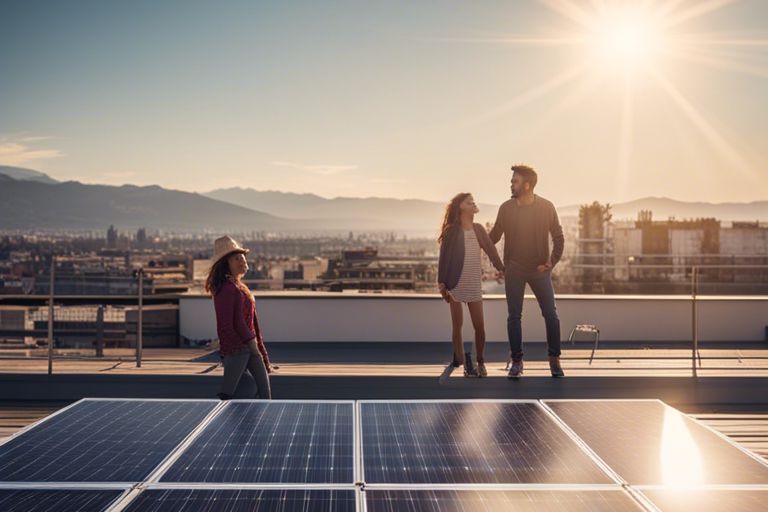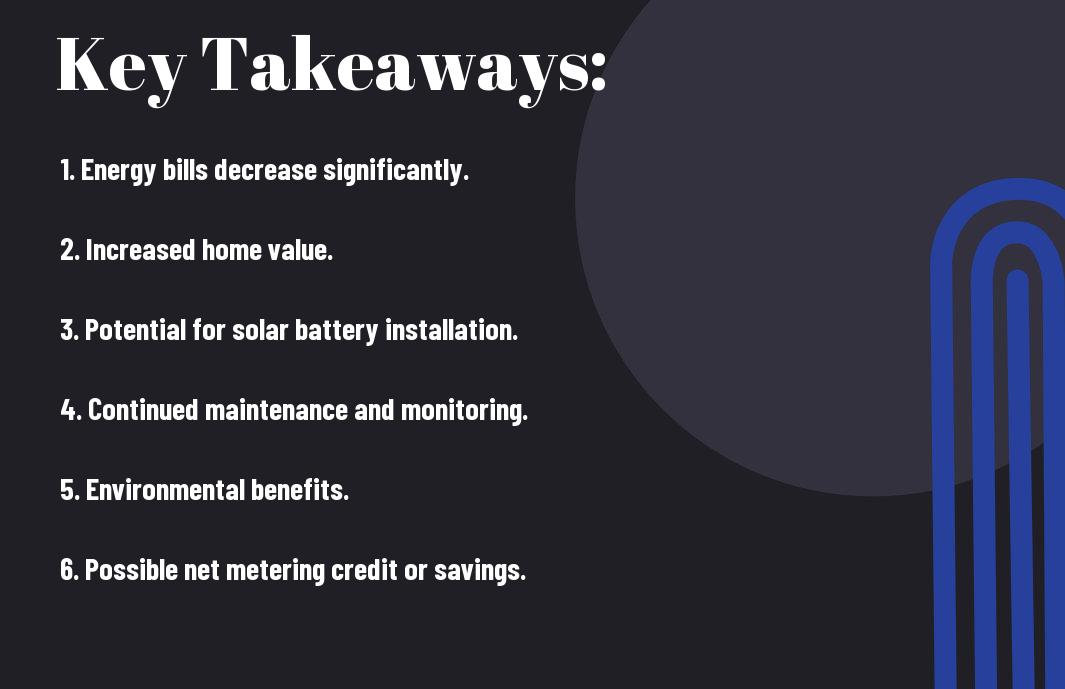You may be wondering, “Do solar panels void roof warranty?” Installing solar panels on your roof can be a great decision for both the environment and your energy bills. However, it’s crucial to consider how this decision may impact your roof warranty. In this blog post, we will explore the relationship between solar panels and roof warranties, helping you make an informed decision about your home’s energy needs.
Key Takeaways:
- Solar panels can potentially void your roof warranty: Installing solar panels may void the warranty on your roof due to the modifications and penetrations made during the installation process.
- Check with your roofing manufacturer: Before installing solar panels, it is important to check with your roofing manufacturer to understand their policies regarding solar panel installations and how it may impact your warranty.
- Consider additional protection: To avoid voiding your roof warranty, you may want to consider using mounting systems that do not penetrate the roof, or explore options for supplemental warranties that specifically cover solar panel installations.
The Basics of Roof Warranties
What is a roof warranty?
While you may already be familiar with warranties for your household appliances or electronic devices, a roof warranty is a guarantee provided by the roofing material manufacturer or the roofing contractor that covers specific aspects of your roof for a certain period. It is important to understand the terms and coverage of your roof warranty to ensure that you are protected in case of any issues with your roof.
Types of roof warranties
When considering a new roof or installing solar panels on your existing roof, it is crucial to understand the different types of roof warranties available to you. Roof warranties can vary in terms of coverage, duration, and what is included or excluded from the warranty. It is common to come across the following types of roof warranties:
- Limited Warranty
- Full Warranty
- Extended Warranty
- Prorated Warranty
- Manufacturer’s Warranty
These warranties may have specific conditions and limitations, so it is imperative to review the fine print carefully. Though roof warranties can offer you peace of mind, it is vital to understand the terms to avoid any surprises down the line.
How Solar Panels Affect Roof Warranties
There’s a growing trend towards installing solar panels on residential roofs to harness renewable energy and reduce electricity bills. However, before you decide to go solar, it’s crucial to understand how solar panels can impact your roof warranty.
Direct attachment vs. indirect attachment
Attachment methods for solar panels can vary, with some systems directly attached to the roof, while others are indirectly attached. Direct attachment involves securing the panels onto the roof’s surface, potentially voiding the roof warranty. On the other hand, indirect attachment methods use stands or racks that elevate the solar panels above the roof, reducing the risk of voiding the warranty.
Potential damage to roofing materials
Panels that are directly attached to the roof can lead to potential damage to roofing materials over time. The installation process, including drilling holes or adding mounting brackets, can compromise the integrity of the roof. This may result in leaks, water damage, or other issues that may not be covered by the roof warranty.
When considering solar panels for your home, it’s crucial to assess how the installation process may affect your roofing. Make sure to consult with a reputable solar installer and discuss the implications on your roof warranty before proceeding with the installation.
Manufacturer Warranty vs. Installer Warranty
Your roof plays a crucial role in protecting your home, and you may be wondering if adding solar panels can impact its warranty. To investigate deeper into this topic, you can explore more about the relationship between solar panels and roof warranties in the article Do Solar Panels Void Your Roof Warranty?.
Manufacturer warranty: what’s covered?
Manufacturer warranties typically cover the roofing materials themselves. This means that if there are issues with the shingles, tiles, or other materials, the manufacturer would be responsible for replacements or repairs within the specified warranty period.
Installer warranty: what’s covered?
Installer warranties, on the other hand, cover the workmanship and installation of the roof. This type of warranty ensures that if there are any problems due to the installation process, such as leaks or faulty seals, the installer would be responsible for addressing those issues.
To ensure the longevity and integrity of your roof, it’s necessary to understand both the manufacturer and installer warranties and how they interact with the addition of solar panels.
Common Scenarios That May Void a Roof Warranty
Once again, it is crucial to be aware of certain scenarios that could potentially void your roof warranty. Understanding these common situations can help you avoid any unnecessary issues in the future.
Improper installation
Voiding your roof warranty due to improper installation can occur if the solar panels are not correctly mounted or if the installation process damages the roof shingles or structure. It is crucial to hire a reputable and experienced professional to ensure that the solar panels are installed correctly and without causing any harm to your roof.
Failure to maintain the roof
The failure to maintain your roof, including neglecting regular inspections and repairs, can also lead to the voiding of your warranty. If your roof sustains damage due to lack of proper maintenance, the warranty may not cover the necessary repairs. It is crucial to stay proactive in caring for your roof to prevent any issues from arising.
The importance of regular roof maintenance cannot be overstated. By keeping up with inspections and addressing any issues promptly, you can prolong the lifespan of your roof and avoid potential warranty concerns.
Unapproved modifications
Scenarios where unapproved modifications are made to the roof structure, such as adding solar panels without consulting the manufacturer or installer, can also put your warranty at risk. It is crucial to follow guidelines and seek approval before making any alterations to your roof to ensure that your warranty remains valid.
Common unapproved modifications may include drilling new holes in the roof or making changes that could compromise the integrity of the roofing system. Always consult with the appropriate professionals before making any alterations to your roof to avoid any warranty issues.
What to Do If You’re Concerned About Your Roof Warranty
Review your warranty documents
What you should do first when you’re concerned about your roof warranty in relation to solar panels is to carefully review the warranty documents provided by your roof manufacturer and your solar panel installer. Look for any clauses or conditions that talk about modifications to the roof, such as the installation of solar panels. Pay close attention to any language that specifically mentions how solar panels may impact the warranty coverage.
Consult with your solar panel installer
About your concerns regarding the impact of solar panels on your roof warranty, the next step is to consult with your solar panel installer. They should be knowledgeable about how solar panel installation may affect your roof and its warranty. They can provide insights on how to mitigate any potential issues and may even offer solutions that could satisfy both the warranty requirements and your desire to have solar panels.
A reputable solar panel installer will have experience in dealing with roof warranties and can guide you on the best course of action to take to protect both your roof and your solar panel investment.
Contact your roof manufacturer
About addressing your worries about the impact of solar panels on your roof warranty, it’s imperative to reach out to your roof manufacturer directly. Explain your situation and provide them with details about your solar panel installation. They will be able to give you specific information on how adding solar panels may affect your warranty coverage. In some cases, they may offer solutions or alternative products that are compatible with solar panels and still fall within the warranty guidelines.
Understanding the specifics of your roof manufacturer’s policies and recommendations is crucial when considering adding solar panels to your roof to ensure you maintain the validity of your roof warranty.
Mitigating Risks and Protecting Your Warranty
Choose a reputable solar panel installer
On your quest to install solar panels without voiding your roof warranty, choosing a reputable installer is crucial. Look for companies with a proven track record of successful installations and satisfied customers. An experienced installer will know how to work with your roof to minimize any potential damage and ensure a proper installation that doesn’t jeopardize your warranty.
Ensure proper installation and maintenance
Mitigating the risks to your roof warranty involves ensuring that the solar panels are installed and maintained correctly. Proper installation includes using the right mounting systems and sealants to prevent water leaks and damage to your roof. Additionally, regular maintenance, such as cleaning debris off the panels and checking for any issues, can help prolong the life of your solar panels and protect your roof.
Another important aspect of ensuring proper installation and maintenance is to follow the manufacturer’s guidelines. By adhering to their recommendations for installation and upkeep, you can minimize the chances of voiding your roof warranty.
Document everything
Risks to your roof warranty can be reduced by documenting every step of the solar panel installation process. Keep records of permits obtained, contracts signed, and any correspondence with the installer. This documentation can serve as evidence in case any issues arise that could potentially void your roof warranty. By maintaining a detailed record of the installation, you can protect yourself and your investment.
It is also advisable to take photos before, during, and after the installation process. Visual documentation can be useful if you need to prove the condition of your roof before the solar panels were installed or in case of any disputes regarding the installation.
Conclusion
On the whole, it is crucial to thoroughly review your roof warranty before installing solar panels to ensure that you understand how it may impact the warranty. While not all solar panel installations will void the warranty, some may have specific requirements or conditions that need to be met to maintain coverage. By being informed and proactive in discussing your plans with your roofing manufacturer or contractor, you can avoid any surprises and protect your investment in both your roof and solar energy system.
Q: Do solar panels void roof warranty?
A: In most cases, installing solar panels does not void the roof warranty. However, it is important to check with your specific roofing manufacturer and installer to ensure that the warranty will remain valid after the solar panels are installed.
Q: Will installing solar panels cause roof damage?
A: When installed properly, solar panels should not cause damage to the roof. In fact, the panels can actually protect the roof by shielding it from the elements. It is crucial to hire a reputable and experienced solar installer to ensure proper installation.
Q: What should I consider before installing solar panels on my roof?
A: Before installing solar panels, consider the age and condition of your roof, your energy needs, the direction and angle of your roof, any shading issues, local regulations and incentives, and the financial implications of solar panel installation. Consulting with a professional solar installer can help address these considerations.
Q: Are there any additional costs associated with installing solar panels on my roof?
A: In addition to the cost of purchasing and installing solar panels, there may be other costs involved such as permits, inspections, upgrades to your electrical system, maintenance, and monitoring. However, these costs can vary depending on the size of the solar system and your location.
Q: How can I maintain my roof with solar panels installed?
A: To maintain your roof with solar panels installed, regularly inspect the panels for debris or damage, trim any overhanging branches that may shade the panels, keep the roof clean to prevent debris buildup, and have a professional conduct periodic maintenance checks on both the roof and the solar panels.







